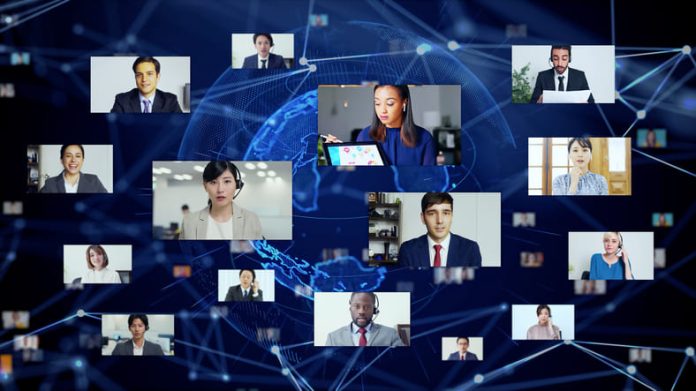The world of work is undergoing a seismic shift, with remote work at the epicenter of this transformation. My conversation with Brendan Chard, owner of The Modern Firm—a one-stop-shop marketing firm for small law firms—sheds light on the intricacies of managing a business that operates entirely in the digital realm.
The Genesis of Remote Work at The Modern Firm
Fifteen years ago, The Modern Firm embarked on a journey that would set the stage for the future of work. The transition to a fully remote operation was spurred by a blend of personal circumstances and the advent of collaborative tools like Dropbox and Skype. This pivotal decision marked the beginning of an era where geographic boundaries ceased to limit talent acquisition, proving that a company could thrive outside the conventional office setup. The Modern Firm’s experience is a testament to the transformative power of remote work, which has become ingrained in their culture, processes, and technological framework.
Transitioning to remote work is more than just a logistical change; it’s a cultural revolution. Trust and accountability emerge as the bedrock of this new paradigm. Unlike the traditional office environment where oversight is tangible, remote work necessitates a shift towards a trust-based model. The Modern Firm’s journey highlights the importance of building a culture where trust is paramount, ensuring that team members feel valued and empowered despite the physical distance.
Communication stands as one of the most formidable challenges in a remote setting. The abundance of tools at our disposal can lead to confusion and inefficiency if not managed properly. The Modern Firm’s approach to this challenge involves setting clear guidelines for tool usage, ensuring that every piece of technology serves a distinct purpose, thereby streamlining communication and maintaining a cohesive digital workspace.
Addressing the Isolation and Burnout Conundrum
One of the less discussed aspects of remote work is the potential for social isolation. The absence of a physical office removes the built-in social interactions that many take for granted. For individuals like Brendan Chard, who thrive on social engagement, finding alternative avenues for interaction is crucial. Engaging in local professional groups and incorporating social activities into the daily routine can mitigate the effects of isolation, enhancing overall well-being and job satisfaction.
Remote work, while liberating, introduces unique stressors that can lead to burnout. The Modern Firm’s experience sheds light on several factors contributing to this phenomenon, including the challenge of separating work from personal life, the constant presence of household tasks, and the pressure to be perpetually available online. Addressing these issues requires a multifaceted approach, emphasizing clear expectations, self-awareness, and strategic use of technology to streamline work processes.
Empowering Managers in a Remote Environment
In a remote setting, managers play a critical role in maintaining team cohesion and well-being. The Modern Firm’s strategies offer a blueprint for success, emphasizing the importance of clarity in expectations, encouraging time off, and adopting a flexible approach to work schedules. Managers must also be mindful of the potential for disruptions in a remote environment, striving to minimize interruptions and afford employees greater control over their time.
For remote employees, delineating the line between work and personal life is paramount. The Modern Firm encourages practices such as end-of-day rituals to maintain this balance. Employees are also encouraged to work flexibly, working during the hours that they prefer, so long as they are accomplishing all duties and not overworking. Utilizing communication tools effectively and minimizing notifications can also help employees stay focused during work hours and fully disengage during personal time, contributing to a healthier work-life balance.
The Role of Technology in Enhancing Remote Work
In the realm of remote work, technology serves not just as a facilitator, but as a transformative force that reshapes how tasks are performed, how teams communicate, and how businesses measure success. The Modern Firm’s strategic use of various platforms exemplifies the pivotal role of technology in enhancing remote work dynamics.
AgencyAnalytics has been a game-changer for The Modern Firm, particularly in the context of client reporting. In the intricate world of marketing, where data speaks volumes, presenting information in a clear, concise, and compelling manner is crucial. Prior to adopting AgencyAnalytics, the firm grappled with the complexities of tools like Google Data Studio, which, despite its capabilities, often resulted in cumbersome and time-intensive reporting processes.
The switch to AgencyAnalytics marked a significant leap forward. Designed with the specific needs of agencies in mind, it offers a suite of features that streamline the creation of client reports. Its user-friendly interface and customizable dashboards allow for the assembly of reports that not only convey valuable insights but do so in a visually appealing manner. This enhancement in reporting efficiency does more than just save time; it elevates the firm’s professionalism and reinforces client trust by delivering clear, actionable insights with a polished aesthetic.
Beyond the efficiency gains, AgencyAnalytics has played a crucial role in improving client engagement for The Modern Firm. The platform’s real-time reporting capabilities provide clients with up-to-date insights into their marketing campaigns, fostering a transparent and collaborative working relationship. This immediacy and clarity in communication are particularly valuable in a remote work context, where building and maintaining client trust can be challenging due to the lack of face-to-face interactions.
AgencyAnalytics does not operate in isolation; it is part of a broader ecosystem of tools that The Modern Firm leverages to optimize remote work. Calendly simplifies meeting scheduling, eliminating the back-and-forth emails that can clutter inboxes and consume valuable time. Zoom brings team members and clients together, facilitating deeper connections through video communication. Loom offers an innovative solution for asynchronous communication, allowing team members to convey nuanced messages without the need for real-time interaction.
The advent of AI tools has introduced new possibilities for enhancing productivity and creativity in the remote workplace. In creative and marketing fields, where the generation of ideas and content is paramount, AI tools can significantly reduce the cognitive load associated with routine tasks. For The Modern Firm, AI applications like ChatGPT have unlocked creative potential by providing a starting point for ideation, effectively reducing the time spent staring at a blank page and allowing for more focused, deep work on substantive tasks.
Conclusion
The journey of The Modern Firm through the remote work landscape offers invaluable lessons for businesses navigating this new territory. Embracing remote work requires a holistic approach, encompassing cultural, operational, and technological adaptations, as I tell my clients in helping them figure out a flexible work model for their companies. By fostering a culture of trust, streamlining communication, addressing the challenges of isolation and burnout, and leveraging technology, businesses can unlock the full potential of remote work. The insights gleaned from The Modern Firm’s experience serve as a guiding light, illustrating that with the right strategies, remote work can be a catalyst for innovation, employee satisfaction, and unparalleled business success.
About the Author

Dr. Gleb Tsipursky helps leaders use hybrid work to improve retention and productivity while cutting costs. He serves as the CEO of the boutique future-of-work consultancy Disaster Avoidance Experts. He is the best-selling author of 7 books, including the global best-sellers Never Go With Your Gut: How Pioneering Leaders Make the Best Decisions and Avoid Business Disasters and The Blindspots Between Us: How to Overcome Unconscious Cognitive Bias and Build Better Relationships. His newest book is Leading Hybrid and Remote Teams: A Manual on Benchmarking to Best Practices for Competitive Advantage. His cutting-edge thought leadership was featured in over 650 articles and 550 interviews in Harvard Business Review, Forbes, Inc. Magazine, USA Today, CBS News, Fox News, Time, Business Insider, Fortune, and elsewhere. His writing was translated into Chinese, Korean, German, Russian, Polish, Spanish, French, and other languages. His expertise comes from over 20 years of consulting, coaching, and speaking and training for Fortune 500 companies from Aflac to Xerox, and over 15 years in academia as a behavioural scientist at UNC-Chapel Hill and Ohio State. A proud Ukrainian American, Dr Gleb lives in Columbus, Ohio.































































